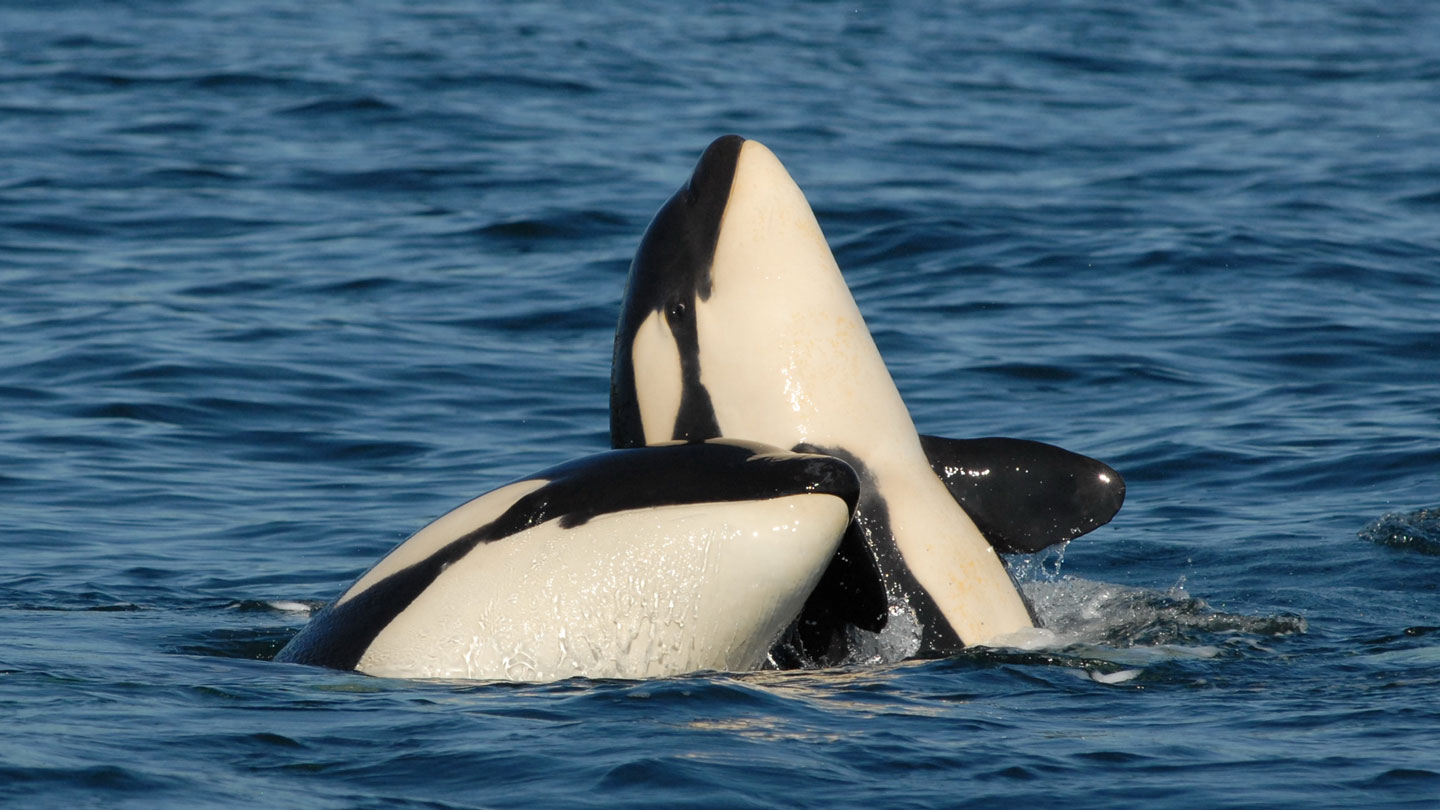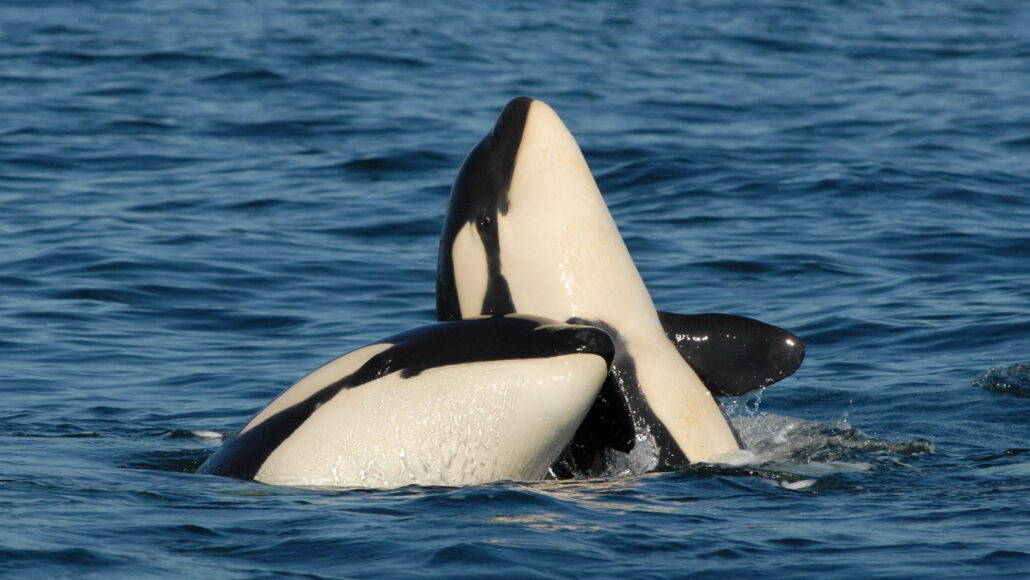
Orca moms baby their adult sons. That favoritism pays off — eventually
By sharing fish with their adult sons, orca moms may skimp on nutrition, cutting their chances of more offspring but boosting the odds for grandwhales.

Among some killer whale moms, lifelong feeding for adult sons but not daughters could be a long-term investment play. The delayed payoff? Greater grandmotherly glory.
Females in a quirky population of killer whales off the Pacific Coast of North America let their grown mama’s boys share fish that mom catches. Biologists have known that this pampering continues throughout a son’s life, which can last decades. Grown daughters, often feeding their own offspring, however, don’t get such a bonus.
Scrutinizing decades of data has now revealed what moms sacrifice to lavish a lifetime of food on a son, researchers report February 8 in Current Biology. A mother’s yearly chance of successfully weaning a calf drops by about half after she has a son, says behavioral ecologist Michael Weiss of the Center for Whale Research in Friday Harbor, Wash.
For the moms, “it’s a huge, huge cost that they’re taking on,” Weiss says. It “emphasizes kind of the uniqueness and the intensity of this mother-son bond in killer whales.” For creatures that bear their young in a series, he says, this finding is “our first kind of direct evidence of any animal showing lifetime parental investment.”
These killer whales off the coast of Washington State and British Columbia, in “the southern resident” population of Orcinus orca, don’t migrate. Instead they specialize in feeding year-round on the region’s fish, such as big chinook salmon.
When moms catch a fish, “they do this huge head jerk, and one half of the fish stays in the mouth and the other half kind of trails behind them as they swim on,” Weiss says. A son swimming with her can then grab that other half. “It’s not the son coming up and grabbing the fish out of her mouth,” he says.
The son’s company looks consensual to Weiss. Mothers and sons “spend a lot of time kind of floating at the surface together … just kind of enjoying each other’s company.” Whale watchers need to take care reading interpretations into behavior, he says, but his “intuition from watching them is more about the mom wanting to provide for the son.”
Weiss doesn’t think the decline in new births after producing a son comes from any lack of opportunity to mate. “These whales are really social,” he says. “They’re usually in quite large groups, and usually with at least one sexually mature male around.” When watching them from drones, “we see that social behavior in these whales often involves a lot of sexual behavior,” he says. Nevertheless, all those halved fishes may not give a mom enough nutrition for the demands of whale pregnancy.
Mom’s grandchild tally however can make up for her own limited reproduction as she coddles her sons, the whale records show. Sons don’t have to parent. They just deliver sperm to the right address. Plus, the longer males live, the better, Weiss says. For a few years, genetics suggested that the two oldest males in the southern resident population were siring more than half the new calves.
Female killer whales, however, face more constraints. Killer whale pregnancies last some 18 months. So a Casanova whale’s sister gets preoccupied for a long time producing just one wrinkly not-so-little darling and then nurturing it to independence.
Female killer whales do have a chance to help later generations survive, because the species is among the few nonhuman mammals that experience menopause (SN: 3/5/15; SN: 8/19/13). (Females can stop reproducing in their 30s or 40s, but can live into their 80s).
Whether moms in other killer whale populations also routinely and consequently serve dinner for grown sons isn’t an easy question to answer. Weiss wonders whether the same male whales in another place, perhaps with more abundant fish, would still reduce their mothers’ success at later births.
No other killer whale population’s records can match the depth of the ones Weiss used, says cetacean biologist Eve Jourdain of the University of Oslo. Her research focuses on killer whales around Norway that follow the seasonal movements of herring and other food bonanzas.
Jourdain doesn’t recall moms flinging fish, but she watches the whales herding local herring into big fish balls of swimming dinner. Which they share. So there may be other kinds of food-based bonding yet to be analyzed.
Thoughts?
